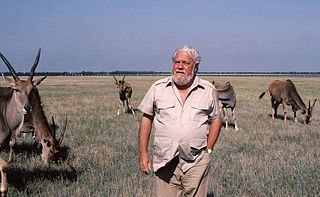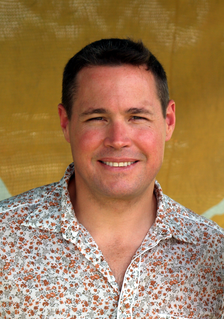A Quote by Erwin Schrodinger
For a solitary animal egoism is a virtue that tends to preserve and improve the species: in any kind of community it becomes a destructive vice.
Related Quotes
You cannot begin to preserve any species of animal unless you preserve the habitat in which it dwells. Disturb or destroy that habitat and you will exterminate the species as surely as if you had shot it. So conservation means that we have to preserve forest and grassland, river and lake, even the sea itself. This is vital not only for the preservation of animal life generally, but for the future existence of man himself - a point that seems to escape many people.
What happens if you are the last (the very, very last) of your species, and you die - and humans notice? We live, increasingly, at a time when extinctions are recorded, remembered, and the last animal (or plant) in its line, by virtue of its being last, becomes a kind of celebrity. Its finality becomes a thing to honor.
It must be stressed that there is nothing insulting about looking at people as animals. We are animals, after all. Homo sapiens is a species of primate, a biological phenomenon dominated by biological rules, like any other species. Human nature is no more than one particular kind of animal nature. Agreed, the human species is an extraordinary animal; but all other species are also extraordinary animals, each in their own way, and the scientific man-watcher can bring many fresh insights to the study of human affairs if he can retain this basic attitude of evolutionary humility.
When Nietzsche praises egoism it is always in an aggressive or polemical way, against the virtues, against the virtue of disinterestedness (Z III "Of the three evil things"). But in fact egoism is a bad interpretation of the will, just as atomism is a bad interpretation of force. In order for there to be egoism it is necessary for there to be an ego.
When I speak of knowledge of nature, I do not mean industrial science, which argues that nature is inert and can be understood only to enable humans to manipulate it. I mean that sense of nature that Aldo Leopold had in mind when he said, "A thing is right when it tends to preserve the integrity, stability, and beauty of the biotic community, wrong when it tends otherwise.
The practice of conservation must spring from a conviction of what is ethically and aesthetically right, as well as what is economically expedient. A thing is right only when it tends to preserve the integrity, stability, and beauty of the community, and the community includes the soil, waters, fauna, and flora, as well as people.




































